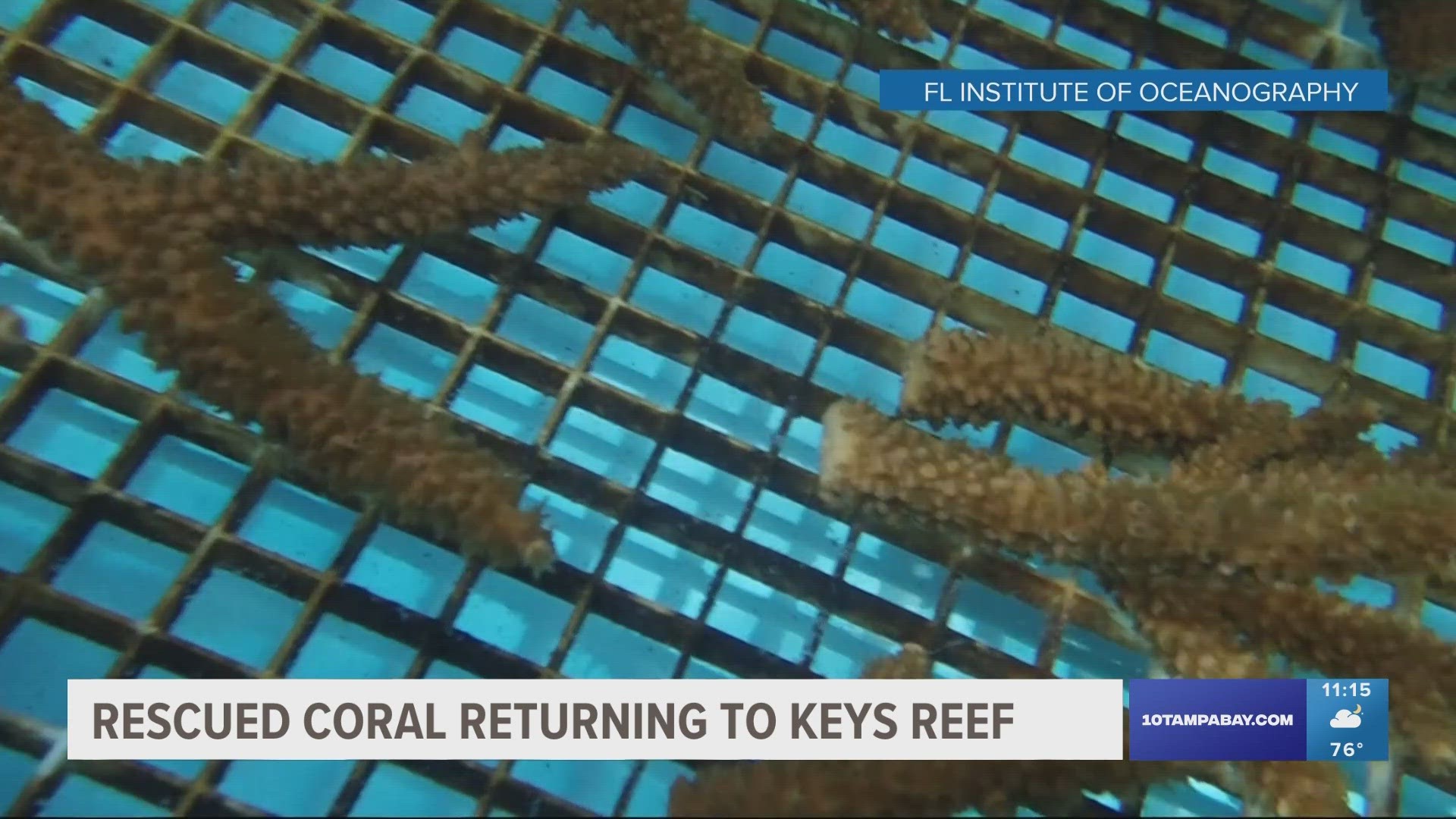ST. PETERSBURG, Fla. — It's the good news you didn't know you needed – corals were saved, and are now returning to their home reef off the Florida Keys.
Back in July, water temperatures at the bottom of the ocean in the Keys were in the upper 80s and 90s, twoo hot for corals to survive.
"We knew that we had a long hot summer ahead of us and we were afraid that the corals wouldn't be able to survive that length of time at that temperature," Dr. Cynthia Lewis, the director of FIO's Keys Marine Laboratory, explained.
The Keys Marine Laboratory has one of the largest temperature-controlled seawater systems. In those on-land nurseries, more than 5,000 rescued corals were cared for.
"[Corals are] the first line of defense and in the event of storms," Lewis said. "And those reefs out there actually begin to break down the wave energy. So it reduces the amount of erosion and flooding that we have on shore."
Along with being a pretty site while scuba diving, the purpose they serve is all the more reason to invest in caring for our marine animals.
After months of care, the corals and the ocean water temperatures are in good condition for the thousands of corals to be returned. And it's not as simple a process as just putting them back.
"One strategy is to pound metal nails into the reef and then you take the coral and you zip tie it around the nail and it eventually stabilizes," Lewis said. "Another possibility is to take underwater epoxy special marine epoxy or cement, and actually epoxy or cement the base of the coral to the reef and let them grow that way."
It's expected to take weeks, potentially a few months, to return all the corals to the ocean.
Lewis and her team are caring for six different coral species, some of which are endangered or threatened. For Lewis, these corals are the happy ending we always could use more of.
"This is the part that gives all of us hope, you know, this is the story we wanted to tell that these corals are going to go back to the reef, they're going to rebuild those nurseries vital to the restoration for the reef in the coming years."
When ocean temperatures rise again, Lewis and her team are ready for the next coral rescue mission.
Malique Rankin is a general assignment reporter with 10 Tampa Bay. You can email her story ideas at mrankin@10tampabay.com and follow her Facebook, Twitter, and Instagram pages.

